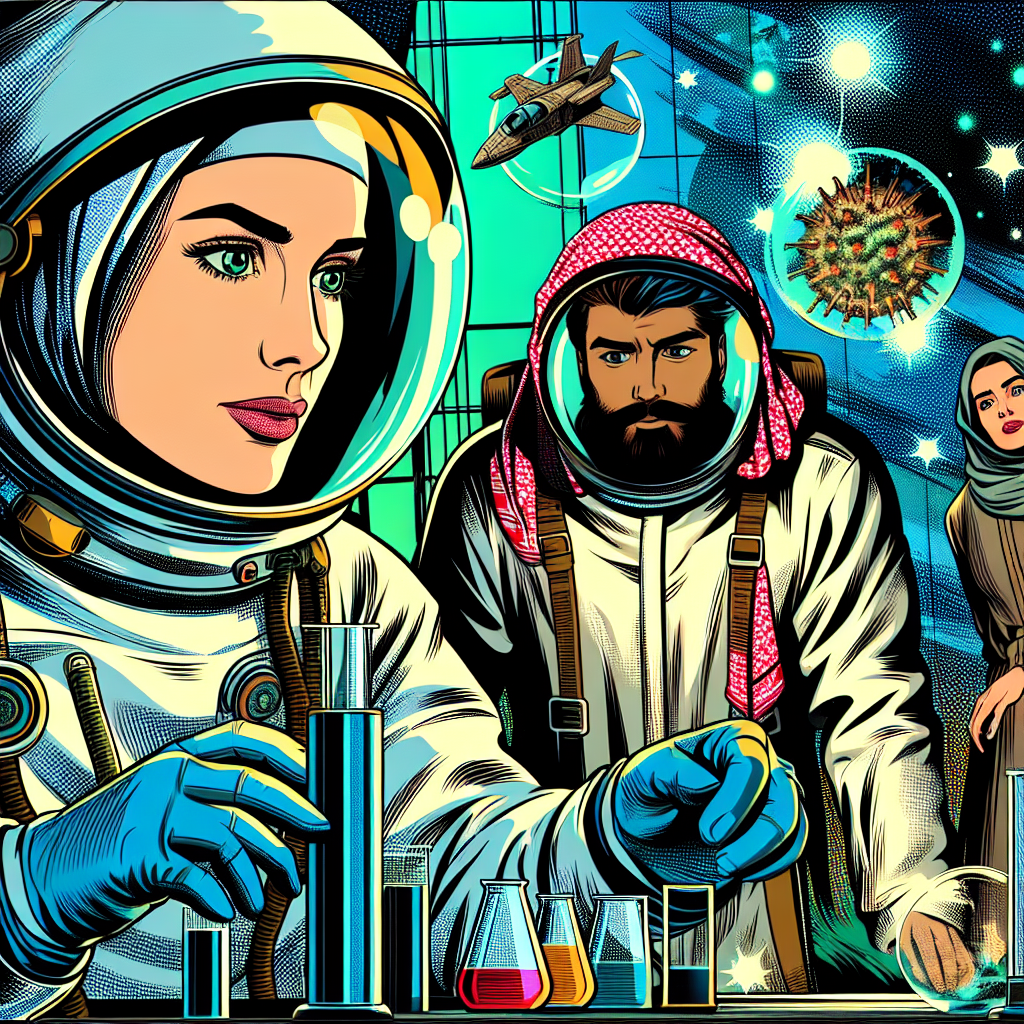When we talk about extending human life in space, we're essentially asking how we can keep our bodies healthy and thriving in an environment that's fundamentally hostile to human physiology. Think of space as a toxic wasteland, devoid of breathable air, extreme temperatures, and intense radiation. It's like trying to survive in a desert without an oasis.
Our bodies are adapted to live on Earth, where we have a constant supply of oxygen, a stable temperature range, and a protective magnetic field. In space, those luxuries disappear. Radiation from the sun and deep space would ravage our cells, while the lack of gravity would cause our muscles to atrophy and our bones to weaken. It's like being trapped in a never-ending, zero-gravity elevator that's slowly draining the life out of you.
To extend human life in space, we'd need to create a bubble of safety around us, a self-sustaining ecosystem that mimics the conditions on Earth. This means generating breathable air, regulating temperature, and shielding ourselves from radiation. Imagine living in a giant, orbiting terrarium, where every aspect of our environment is carefully controlled to keep us alive.
One of the biggest challenges is radiation protection. In space, we're exposed to a constant barrage of high-energy particles that can damage our DNA and increase the risk of cancer. We'd need to develop advanced shielding materials or technologies that can absorb or deflect these particles, like a cosmic umbrella.
Another hurdle is muscle and bone loss. In microgravity, our bodies don't need to work as hard to maintain muscle mass, so our muscles shrink, and our bones lose density. We'd need to develop exercise routines and equipment that can mimic the effects of gravity, like a cosmic treadmill.
Sleep patterns would also be disrupted in space. Without a normal day-night cycle, our bodies would struggle to regulate their internal clocks. We'd need to create artificial environments that simulate a 24-hour cycle, using lighting and temperature cues to trick our bodies into thinking it's day or night.
Food production would be another crucial aspect. In space, we can't simply walk outside and plant a garden. We'd need to develop closed-loop life support systems that recycle air, water, and waste, and use hydroponics or aeroponics to grow food. It's like creating a mini-ecosystem within our spacecraft.
Waste management would also become a critical issue. In space, waste can't be simply thrown away or buried. We'd need to develop advanced recycling systems that can convert waste into usable resources, like a cosmic recycling plant.
Psychological factors would also come into play. Confined to a small, enclosed space for extended periods, astronauts could experience anxiety, depression, and claustrophobia. We'd need to develop strategies for maintaining mental health, like virtual reality relaxation chambers or calming AI-powered companions.
In addition, space travelers would be vulnerable to isolation. We'd need to create virtual communication networks that allow them to stay connected with loved ones back on Earth, and maintain a sense of community and connection.
If we could overcome these challenges, the benefits of extending human life in space would be enormous. We could establish permanent, self-sustaining colonies on the Moon or Mars, enabling humanity to become a multi-planetary species. We could harness the resources of space to solve global problems, like energy and resource scarcity. The possibilities would be endless, like a cosmic frontier waiting to be explored.
Ultimately, extending human life in space would require a fundamental shift in how we think about survival and thriving in environments that are hostile to human life. It's a monumental task, but one that could change the course of human history.

Popular Space Questions
Find answers to the trending space questions being asked by our community on social media.
- How many galaxies are there in the universe?
- What would happen if a rogue planet entered our solar system?
- How far is Pluto from Earth?
- How many planets are in the Milky Way?
- How big is the Earth?
- What are the planets in order?
- How many planets are in our solar system?
- How big is the universe?
- What would happen if a pulsar's beam hit Earth?
- What if we found a way to manipulate gravity?